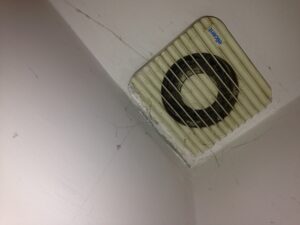Just because your home is run on electricity does not mean you know what’s going on in all of your circuitry day in and day out. When nothing is wrong, there’s no reason to ask questions about a system that works well. However, when issues arise, your lights are flickering or your electrical wiring is hot or buzzing, a little information about how electrical wiring works goes a long way.
Breakers, in particular, can be a subject of interest or concern for many homeowners. What types are there? How many do I need?
That’s what Prairie Electric is here for. We’re always glad to answer your questions and clarify any confusion you may have so you can troubleshoot small issues and prevent larger ones.
What Does a GFCI Breaker Do and How Many Should I Have in my House?
GFCI stands for ground fault circuit interrupter. These essential breakers detect variances in the amount of power coming moving in and out of an electrical circuit, even at levels as small as 6 milliamps. Because electrical circuits should have the same amount of power coming back as going out, GFCIs monitor the circuit to keep levels appropriate. Once it detects a difference in input vs. output, the GFCI will protect you by shutting down the circuit.
Rooms that are required to have GFCI protection include the garage, bathroom, kitchen countertop, the area within 6 feet of any sink, and all outdoor areas with plugs.
What is an Arc Fault Circuit Interrupter (AFCI) breaker? How many Do I Need?
AFCI breakers look similar to GFCI breakers, but provide a different function. GFCIs protect people, while AFCIs protect the building itself. AFCIs trip when arcing occurs on electrical circuits (which is a good thing, because arcing can cause arc fires, or massive threats to your buildings). Arcing can occur in a pierced wire or loose connection along a circuit, so AFCIs function specifically to prevent fires in homes and other structures with these wiring issues.
If the AFCI detects arcing, it will trip the circuit and shut it down. However, do not leave a tripped circuit unexamined. If your AFCIs are tripping, contact Prairie immediately to inspect your wiring for further threats. All areas of your home should be equipped with arc breakers, so be sure to ask us to install any that might be missing.
Breakers keep you and your property safe from electrical fires. Particularly in older homes that may not be wired to meet the modern need for power, GFCI and AFCI breakers save lives every single day. If you are unsure whether your home meets local electrical codes, are having issues with tripped breakers, or simply want to ask a question, call Prairie today. It is truly our pleasure to serve you.


